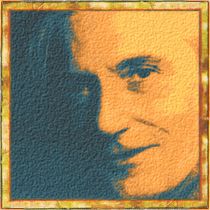[biography] - [quotes] - [publications]

 an
the animal unassumingness,
an
the animal unassumingness,
which is stuck in man,
hope for words, for a shape?
(János Pilinszky)
1921 born in Budapest
1938 studied law, Hungarian literature and art history at Eötvös Loránd
University, Budapest, but never completed his studies
1938 his first poems are published in various literary journals
1944 soldier and prisoner in Germany
1946-47 co-editor of Újhold
1947 received the Baumgarten Prize
1947-48 scholarship in Rome
1957 contributor to the Catholic journal Új Ember
1960-70 he travelled in Europe and the USA and contributed to several
poetry readings
1971 József Attila Prize
1980 Kossuth Prize
1981 he died in Budapest
As a writer of metaphysical poetry, essay and drama, Pilinszky has deeply
influenced postwar Hungarian poetry. His early experiences in the second
World War prison camps where he spent several months had only strengthened
his personal alienation and existential anguish, and resulted in uniquely
intense poems. The tension between his heartfelt Catholicism and intellectual
agony points towards his relatedness with both mysticism and the absurd.
"Poetry for me is not a phenomenon beyond language, but rather
one on the near side of language, or underneath language, in the same
way that life remains underneath the wholeness of the universe. For
me a poet is the kind of inhabitant of dungeons for whom the sheer sense
of touch is more important than what he discovers by means of touching"
(János Pilinszky)
Other works: poems for children, essays, oratories, film
scripts, letters and a novel in dialogue.
"Pilinszky is different. Everybody is different but some are even more so. Pilinszky is more different in that way in Hungarian poetry and within poetry as such; that is, he is different in fact, he is genuinely different, deeply deviant, rare and improbable, a white antelope, an element beyond the periodic table. When he walked down the street, one of those dark Budapest streets of the fifties, in his short coat, too tight around the shoulders, he walked like a persecuted legend. That is just what he was. A persecuted legend, pushed out of literature and completely unknown; perhaps fellow-dwellers in the catacombs whispered his name, passing it from mouth to mouth and ear to ear." (Nemes Nagy Ágnes)
[biography] - [quotes] - [publications]
 |
Frankfurt '99
Non-profit Organisation,
Budapest 1054 Báthori u. 10. Fax: +(36) 1 269 20 53 E-mail: frankfurt_99.kht@mail.matav.hu |
|